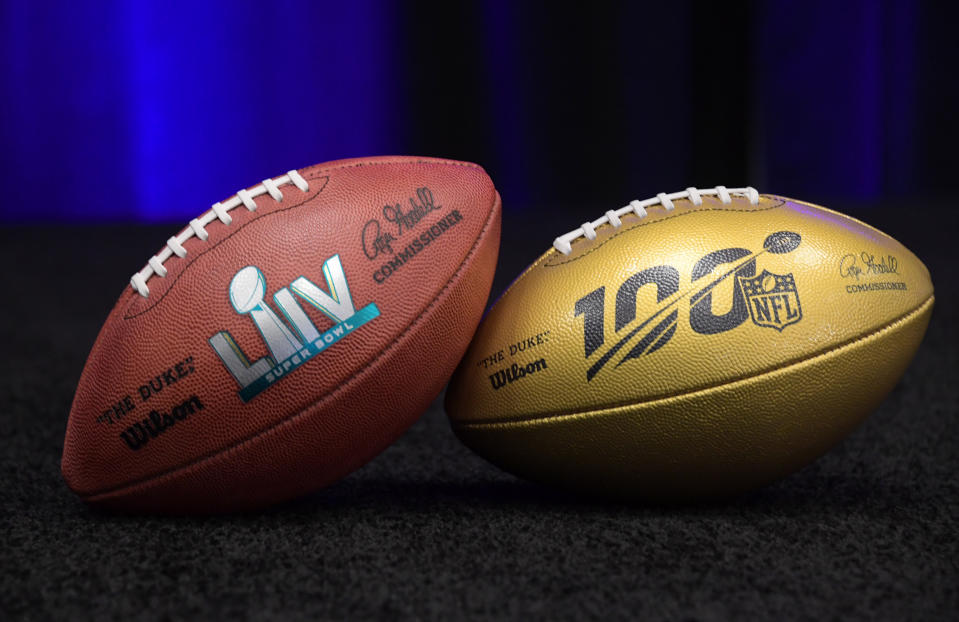Miami Super Bowl could mark end of paper tickets for big game, start of NFL collecting data on every attending fan
The good old days of NFL fans wrapping their hands on paper tickets stubs for the Super Bowl appear to be numbered. So much so, next month’s Super Bowl LIV might be the last time the game isn’t fully converted to mobile ticket entry.
League and industry sources confirmed a report this week from The Athletic that the NFL is aiming to push this year’s Super Bowl to roughly 10,000 mobile entries, which the report stated would double last season’s figure. The increase is aimed at measuring the feasibility and potential pitfalls of converting the Tampa Super Bowl in 2021 almost entirely to entry via mobile phones, which would essentially eliminate the age-old “in-hand” ticket stubs that have come to define part of the Super Bowl experience.
A league source confirmed The Athletic’s reporting that the NFL is weighing the potential of issuing some kind of commemorative ticket in place of the popular “stubs” that often flood the memorabilia market in the ensuing years after memorable games.

Such a move would benefit the NFL on multiple fronts financially in the coming years, wiping out fraudulent duplication of paper tickets, setting the stage for potential cost-cutting through the elimination of physical stubs by franchises, funneling fans onto more of the league’s mobile platforms, and further monetizing the NFL’s tightening grip on who has the ability to sell its product.
Two aspects of mobile tickets could end up being particularly lucrative: collecting the personal data of fans who are attending the games, which could intensely sharpen the impact of league marketing in the coming years; and further sucking the oxygen out of a secondary market that has seen the league’s most prized game generate tens of millions in resale profits for brokers who haven’t cut the NFL in on the profits.
It apparently won’t end there, either. Industry sources familiar with the NFL’s continued study of ticket control told Yahoo Sports that the league is thinking outside the box and aggressively examining how different forms of intuitive technology could help the NFL squeeze every last dime out of ticket sales. According to one source, those efforts have included engaging companies that have worked to develop complex proprietary ticket-selling algorithms that could weigh thousands of data points in real time to help maximize both price and sales online.
Of course, the move toward strangling the secondary ticket market further won’t sit well with secondary brokers, who have seen the NFL wage war on their services in recent years.
Asked for thoughts of the league’s move toward fully mobile tickets in 2021, one broker replied: “Data. Data. Data. Control. [Money]. Prices will be higher. The NFL will control the inventory.”
Undoubtedly, the league having data on who is holding its tickets — down to a person’s name and financial payment information — could create some interesting scenarios as the NFL determines how it wants to control tickets. As it stands, some teams have already created some fairly inflammatory moments with their fan bases in recent years by pulling season tickets from fans who chose to sell single-game seats through the league-approved sites online.
The Denver Broncos, for example, raised some eyebrows when they tracked fans who were selling seats on The NFL Ticket Exchange, which is one of the league’s advertised partner platforms on Ticketmaster. Using the data handed over by Ticketmaster, the Broncos pulled some season tickets from fans without fully explaining the criteria used to determine that too many tickets had been sold on the exchange. It stands to reason that if some NFL teams are analyzing that kind of Ticketmaster data on the team level, it creates an open-ended opportunity for the league to study Super Bowl tickets on a granular level as well, monetizing loyal fans moving forward or weaponizing the data against fans who might run afoul of the NFL in some way (such as repeatedly re-selling Super Bowl tickets).
Time will eventually sort out those possibilities, but one way or another, the future of Super Bowl tickets is going to change. The league sees too much money and too much wasted opportunity to let its most highly coveted ticket live in the past.
More from Yahoo Sports:

